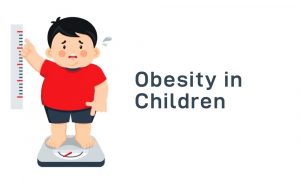 Obesity in children is a rising issue in India, with projections showing that over 27 million Indian children will be obese by 2030, making up one in ten obese children globally.
Obesity in children is a rising issue in India, with projections showing that over 27 million Indian children will be obese by 2030, making up one in ten obese children globally.
The National Family Health Survey shows that the number of overweight children under five years old increased from 2.1% in 2015-16 to 3.4% in 2019-21. Another study highlights that urban families, particularly those with higher incomes, have higher rates of childhood obesity.
But why is this happening?
It’s easy to assume that diets high in fats, sugars, and salts, along with sedentary lifestyles caused by excessive technology use, are the main culprits. However, these are not the only reasons for weight gain in children.
Many children face factors beyond their control that cause their bodies to store fat, even when they eat a healthy diet and are physically active.
Let’s dive into some key factors that may be contributing to childhood obesity:
- Genetics
When obesity runs in the family, certain genes may be passed down, causing:
- Increased hunger or a feeling of not being satisfied after eating.
- More fat stored around the belly.
- A slower metabolism, meaning fewer calories burned and more fat stored.
- Hormonal Imbalance
- Hypothyroidism: When the thyroid gland doesn’t produce enough hormones, metabolism slows down, making weight gain easier.
- Insulin Resistance: This condition leads to high blood sugar levels, and the excess sugar gets stored as fat.
- Leptin Deficiency: Leptin regulates hunger. A lack of leptin can cause constant hunger, leading to overeating.
- Early Life Influences
- Maternal Health During Pregnancy: If the mother had diabetes or gained excessive weight during pregnancy, the child’s risk of obesity later in life increases.
- Birth Weight: Babies born with very low or very high birth weights are at greater risk of becoming obese.
- Feeding Patterns in Infancy: Studies suggest that bottle-fed babies may face a slightly higher risk of obesity later in life than breastfed babies, though this is not a strict rule.
- Environmental Toxins and Chemicals
Exposure to chemicals known as endocrine disruptors can interfere with how the body stores fat.
- BPA (Bisphenol A), commonly found in plastics, disrupts the body’s hormones, making it more likely to store fat.
- Phthalates, found in personal care products, can also contribute to obesity by altering hormone balance.
- Psychological and Emotional Factors
Stress, family problems, or bullying can lead to emotional eating in children. Those dealing with depression or anxiety may turn to food for comfort, which can result in overeating.
- Socioeconomic Factors
- Family Lifestyle and Habits: Kids usually adopt the eating and exercise habits of their family. If the family practices unhealthy habits, it’s tough for children to break these patterns, which can lead to obesity.
- Lack of Safe Spaces for Physical Activity: In many neighborhoods, kids don’t have access to parks, sports facilities, or safe areas to play. This lack of physical activity makes it hard to burn off the calories they consume.
- Puberty and Development
During puberty, hormonal changes can naturally cause weight gain as the body prepares for growth spurts. If genetic or hormonal factors are involved, fat storage can increase in certain areas of the body, even when children are active and eating well.
- Gut Microbiome
Research shows that the bacteria in our gut, largely determined by genetics and early environment, can impact how we process food and store fat.
Takeaway
Obesity is not always caused by overeating or a lack of exercise. Many factors are beyond your child’s control.
Understanding this can help remove the guilt or shame associated with childhood obesity.
If your child is struggling with obesity, Dr. Shashank Shah, a leading expert in childhood and teenage obesity, can provide the right guidance and treatment to manage these complex factors.
Take Action Now
If your child is facing obesity, it’s important to seek help from specialists who understand the broader causes. Get in touch with Dr. Shashank Shah at Lapro obeso Center, Pune, India to begin the journey toward better health for your child.

